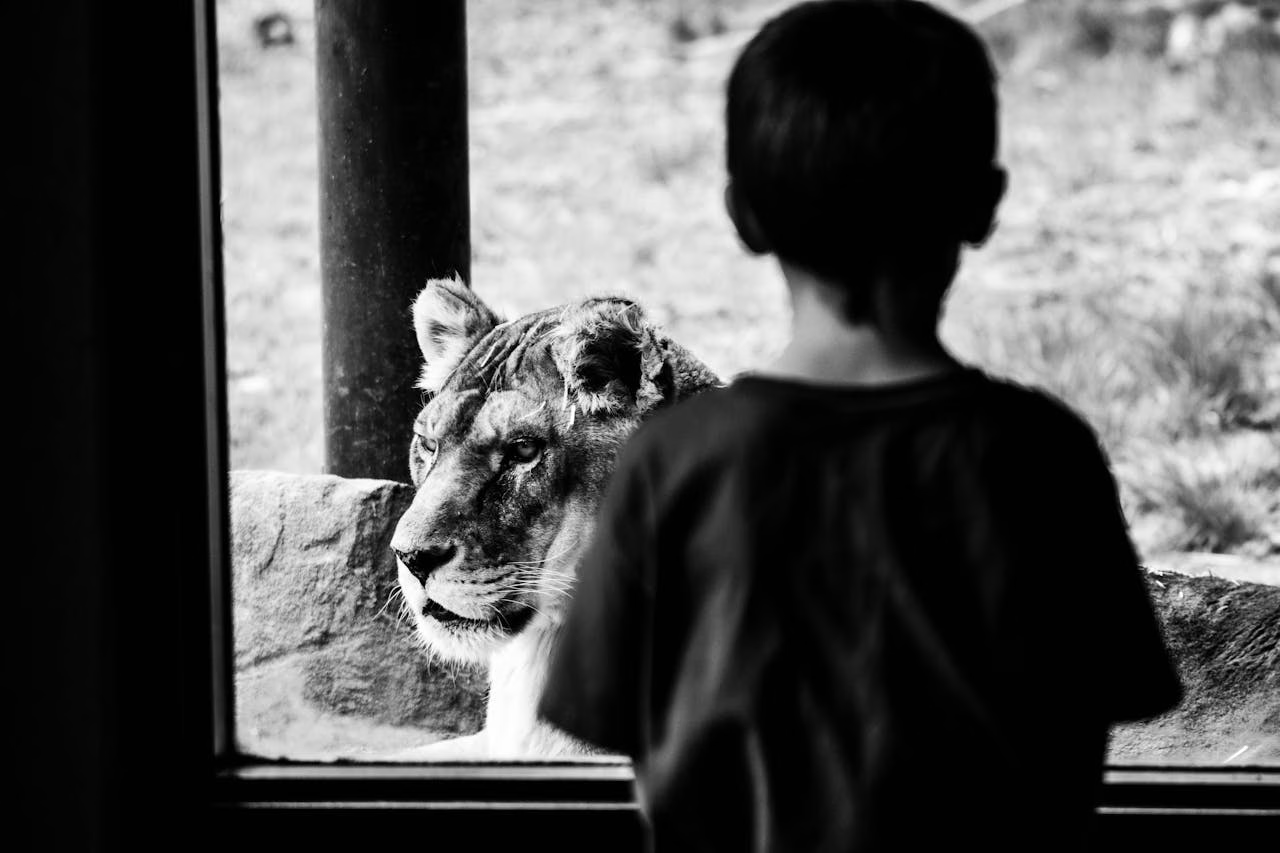In the quiet neighbourhood of Bo Phloi district, in Thailand’s Kanchanaburi province, a terrifying moment unfolded. On the evening of 4 October 2025, an 11-year-old boy named Arthit Nueangnui was playing near his home when a one-year-old lioness, kept illegally as a pet, broke free from its chain and attacked him.
The Escape and Attack
The lioness, called “Mahaesee,” belonged to a 32-year-old social-media influencer, Parinya Parkpoom, who admitted the African big cat had been tethered temporarily while its enclosure was under renovation.
At approximately 8:45 pm local time, the lioness broke free, sprinted into the street and pounced on Arthit, biting him on the hip and pinning him down.
A neighbour, Sarawut Tokaeo (43), intervened, striking and subduing the lioness in a heroic act that saved the boy’s life, though both the boy and the neighbour were seriously injured and hospitalized.
Related: Should Wild Animals Be Pets? Facts Most People Ignore
Why It Happened
Keeping wild animals like lions as pets remains legal in Thailand under certain conditions, but the reality is fraught with risk. Lions are classified as “Type C” controlled wildlife (fierce animals potentially dangerous to humans) and owners must register them, microchip them, and notify the authorities before any relocation.
In this case, the owner admitted he did not notice the chain had broken until after the escape, and neighbours say this was the third time the lion had broken free in the past year.
Organisations such as World Animal Protection have called the incident “not an accident, but a predicted tragedy” and are demanding stronger laws banning private ownership of wild animals.
Legal and Welfare Consequences
The owner faces legal charges under Thailand’s Wild Animal Conservation and Protection Act for releasing a wild animal under his care. Penalties include up to six months imprisonment and fines up to 100,000 baht for certain offences.
The owner faces legal charges under Thailand’s Wild Animal Conservation and Protection Act for releasing a wild animal under his care. Penalties include up to six months imprisonment and fines up tThe lioness has been seized by authorities and is being relocated to a wildlife centre.o 100,000 baht for certain offences.
The lioness has been seized by authorities and is being relocated to a wildlife centre.
What We Can Learn
- Wild animals, no matter how young or seemingly tame, retain their instincts. A lion may appear controllable when small, but grows strong, unpredictable, and dangerous.
- Private homes and tethered chains are no substitute for natural habitat or professionally managed enclosures.
- The line between “exotic pet” and “public hazard” is thinner than many imagine.
- Legislation alone is not sufficient, enforcement, public awareness, and ethical responsibility must go together.
- When an incident happens, the cost isn’t only physical injuries. The emotional trauma for the child, the neighbour, and the community endures.
Related: Do Cats Love or Tolerate Us? What Lion Prides Reveal
Not a Toy, But a Life
At Pawlore, we believe wild animals belong in the wild, to roam, to explore, to live as nature intended. This story of a child attacked by a pet lion reminds us that keeping wild creatures in private hands is not about admiration or status. It’s about risk, control, and sometimes grave consequences.
When a lion becomes a “pet,” the human-animal relationship is turned upside down: the animal loses nature, humans lose safety. And the outcome can be tragic.


